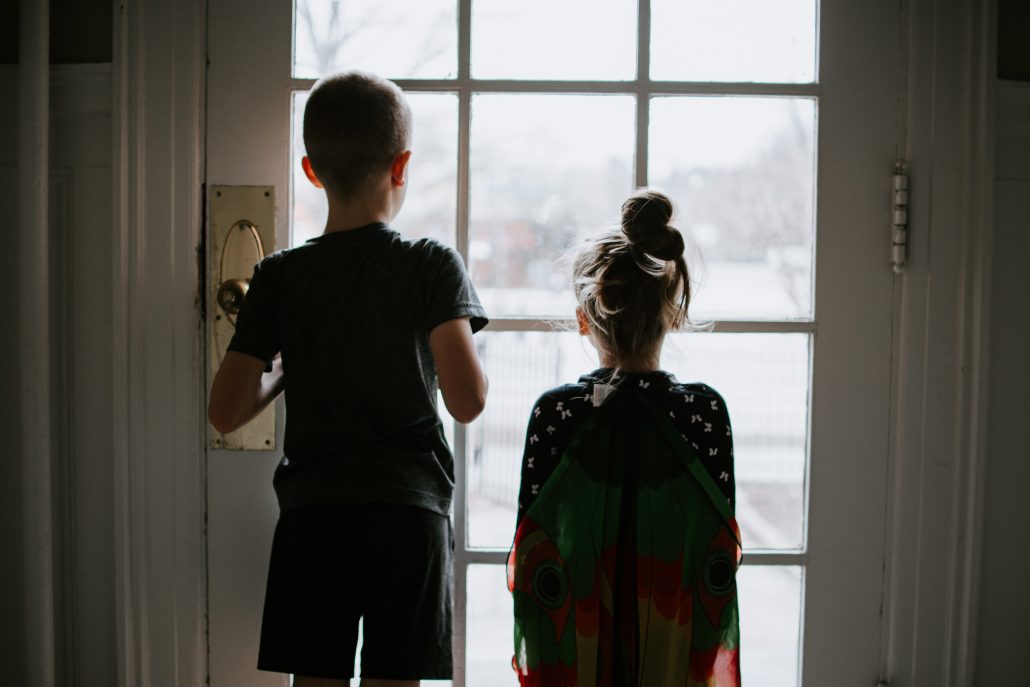Raising Extraordinary Families through Autism and Neurodiversity Support
26th April 2020
Share this entry:
Raising Extraordinary Families through Autism and Neurodiversity Support
Laura Hellfeld | Nurse, Sleep Practitioner, Children’s Yoga
Supporting Siblings During Isolation
Our families have all been settling into this new ‘normal’ as we turned to the safety of staying in our homes. There are definite growing pains for many of our children. They are adjusting to the complete disruption to their routines and long pauses to their usual safe spaces of school and other social activities. On top of that, siblings are now in ongoing, close proximity. All of this is compounded with pressures of missing friends and home learning. It’s no surprise then that siblings may be facing some challenges in getting along.
I think most of us realized that a priority in our homes needs to be our children’s relationship. Here we are then quickly learning to support siblings through this unique situation. We can use this time to build up their relationship while remembering to give some grace when they (and we!) have some wobbles.
Think mantras like “Teamwork” and “Collaboration”
Here are some of my recommendations for supporting your children’s relationship during isolation.
Encourage Non-Competitive Games:
There’s plenty of opportunities for competition but right now fostering a sense of teamwork seems like a smart way to manage these weeks ahead. A scavenger hunt where siblings take turns with the list sets siblings up for cheering each other on. Or, imitation games set up siblings for cooperation and often lots of giggles.
Take Care of Shared Spaces Together:
Siblings can enjoy a sense of accomplishment together by taking care of their things. This may be by sorting through toys and books or by tidying up craft drawers. Now is a great time for siblings to collaborate on creating new artwork or decorations to hang in their play areas and rooms. This idea can be extended to a sibling assisting another sibling with individual spaces. Maybe a sibling needs help putting their laundry away or anther sibling needs help making their bed.
Perform Emotional Regulation Activities Together:
Throughout the day, assist siblings to take pauses to check in with feelings or boost feel-good emotions. This may be with a colouring session with calming music or a more structured breathing exercise. Siblings can learn that they enjoy co-regulating with one another. On the more energetic end is rough-and-tumble play. This type of play is incredibly effective for emotional regulation and as an energy outlet.
Assist with Giving a Sense of Purpose:
Our kids are feeling the loss of their usual roles in social groups. Having a sense of purpose can really ground them during this unsure time. Siblings can be guided to think of activities that help others. Take a moment to reflect on how helping someone else makes us feel and why we help others. Even taking care of plants in a garden is an opportunity to care for something and feel a sense of accomplishment.
Perform Mindfulness Activities:
Similar to the emotional regulation pauses, encourage your children to take moments to reflect. Helpful themes to focus activities around may be gratitude, teamwork, community, and self-esteem. Activities can also centre on siblings. What is your sister good at? What can you thank your brother for today?
Create Separate Downtime:
Our kids need breaks from one another. A time when they can have personal space to enjoy a self-directed activity. If you are creating a schedule for the day, try pencilling in the separate time to ensure it happens. Your children may want to retreat to their room or create a sense of privacy with headphones. You may need to assist one sibling to give the other sibling space. Statements to a sibling may help such as ‘Your sister said she will make that puzzle with you after lunch but right now she wants to read her book.’
Stay Connected to Friends:
Your children may be greatly missing their friends. While a sibling relationship provides its own value, they don’t necessarily substitute for peer relationships. When you are able, you can help support your children to set up separate video-chats with their friends. This may provide an outlet for each child to chat with someone their own age or about a subject that a sibling may not be as interested in.
Laura.KoKoPie@gmail.com
Facebook.com/kokopiefamilies
@KoKoPieFamilies
Why attend Childcare & Education Expo?
Join over 2,500 like-minded individuals from the early years & primary sector who are dedicated to improving their practice and their education settings.
Attend educational seminars to credit your CPD
Meet the experts to have your questions answered
Receive fantastic onsite offers and discounts
Experience expert-led informative hands-on workshops
Network with peers and industry players
Pick up hundreds of new products, resources, ideas and services
And most of all, enjoy a great day out with your colleagues






